Results
-
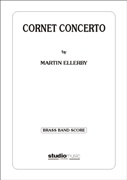 £44.95
£44.95CORNET CONCERTO (Ellerby) (Brass Band - Score only) - Ellerby, Martin
Brass Band extra score only. This bright, optimistic, lyrical concerto, accessible to players and audiences alike, falls into three contrasting movements. Brilliante is a tradional sonata form with two subjects, first a lively fanfare type figure followed secondly by a cantabile theme. The Arietta has legato phrases with an overall singing quality from both the soloist and the band while the final movement, Rondino, is in rondo form with constant changes of metre creating a restless journey to a dynamic conclusion. Duration: 12 mins.
Estimated dispatch 7-14 working days
-
 £89.95
£89.95CORNET CONCERTO (Ellerby) (Cornet Solo with Brass Band) - Ellerby, Martin
Brass Band set including full score. This bright, optimistic, lyrical concerto, accessible to players and audiences alike, falls into three contrasting movements. Brilliante is a tradional sonata form with two subjects, first a lively fanfare type figure followed secondly by a cantabile theme. The Arietta has legato phrases with an overall singing quality from both the soloist and the band while the final movement, Rondino, is in rondo form with constant changes of metre creating a restless journey to a dynamic conclusion. Duration: 12 mins.
Estimated dispatch 7-14 working days
-
 £37.95
£37.95CRIMOND (Brass Band) - Richards, Goff
Recorded on Polyphonic QPRL228D Master Brass (Volume Nineteen), QPRL056D National Brass Band Championships of Great Britain and Gala Concert - 1992
Estimated dispatch 7-14 working days
-
 £44.95
£44.95Deliverance (from War of the Worlds Suite) (Soprano Cornet or Tenor Horn Solo with Brass Band - Score and Parts) - Graham, Peter
Deliverance is the fourth movement of the suite War of the Worlds which was commissioned by the Senzoku Gakuen College of Music Saxophone Orchestra and first performed by them in the Maeda Hall, Japan on June 29 2012, the composer conducting. The music is dedicated to Professor Shin-ichi Iwamoto. The transcription for brass band was first performed by the Brighouse & Rastrick Band, conductor David King, in the Bridgewater Hall Manchester on September 8 2012.The suite takes inspiration from the 1953 film script adaptation of the famous HG Wells novel and key scenes from the film are set as individual movements: Deliverance - survivors seek sanctuary in the Church of Santa Maria, still standing among the burning ruins of Los Angeles, and pray for deliverance from the invaders.Each movement of War of the Worlds is available separately allowing for a variety of "mini-suite" combinations eg: Movements 1,2 and 5 or 3,4 and 5 etc.
Estimated dispatch 7-14 working days
-
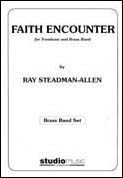 £49.95
£49.95FAITH ENCOUNTER (Trombone/Brass Band) - Steadman-Allen, Ray
for Trombone & Brass Band. An edition with piano accompaniment is available separately. Recorded by Brett Baker with the Boscombe Band of the Salvation Army on Polpyhonic CD QPRL223D Faith Encounter.
Estimated dispatch 7-14 working days
-
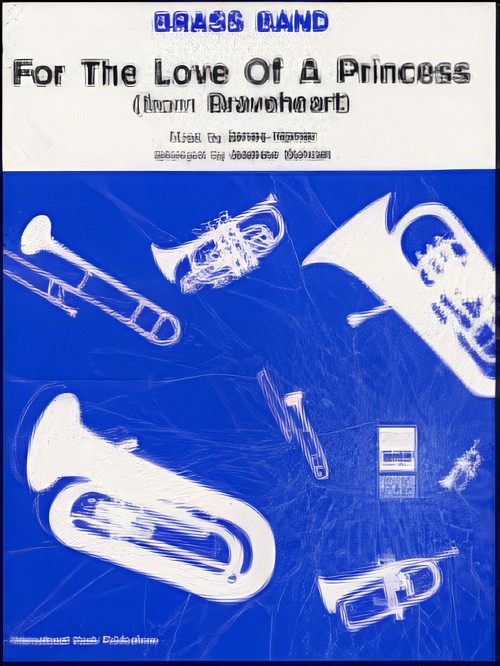 £39.99
£39.99For the Love of a Princess (Brass Band - Score and Parts) - Horner, James - Duncan, Andrew
A spectacular Brass Band arrangement of James Horner's love theme from Braveheart in full score and parts. Ideal for school concert bands, arranged by Andrew Duncan.Suitable for Advanced Youth/3rd Section Bands and aboveRecorded on Polyphonic QPRL220D Master Brass (Volume 16)Duraton: 4.00
Estimated dispatch 7-14 working days
-
 £32.95
£32.95GRAND MARCH from Aida (Brass Band) - Verdi, Giuseppe - Wright, Denis
Recorded on Polyphonic QPRL060D Master Brass Volume Four (1993 All England Masters), Polyphonic QPRL056D National Brass Band Championships of Great Britain and Gala Concert - 1992
Estimated dispatch 7-14 working days
-
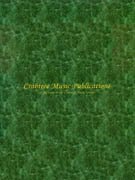 £57.50
£57.50HEJRE KATI (Freeh) (Cornet/Brass Band) - Freeh, Mark
Cornet Solo Brass Band. Recorded on Polyphonic QPRL237D Master Brass Vol.24. Duration: 3:00 Grade: Medium
Estimated dispatch 7-14 working days
-
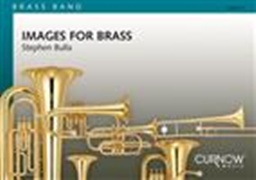 £22.50
£22.50IMAGES FOR BRASS (Brass Band Extra Score) - Bulla, Stephen
2nd Section Test Piece 2016 National Finals of the British Brass Band Championship.
Estimated dispatch 7-14 working days
-
 £53.50
£53.50IMAGES FOR BRASS (Brass Band Set - Score and Parts) - Bulla, Stephen
2nd Section Test Piece 2016 National Finals of the British Brass Band Championship.
Estimated dispatch 7-14 working days
